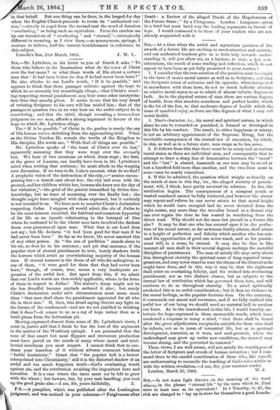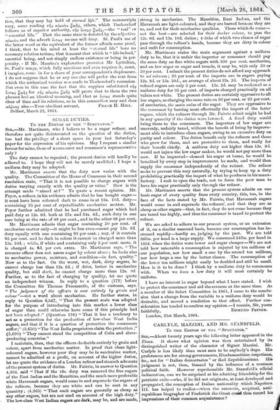SIR,—Is not some light thrown on the meaning of the
word akisioc in the phrase "eternal life" by the term which St. Paul once at least uses as its equivalent? In 1 Timothy, vi. 20, the rich are charged to "lay up in store for themselves a good fottada.. tion, that they may lay hold of eternal life." The manuscripts vary, some reading ri; alteviou Eteix, others, which Tischendorf follows as of superior authority, r's. O'vrede wic,-the "real' or "essential life." That the same state is denoted by the adjective atresiou and the adverb gym; no one will deny. St. Paul's use of the latter word as the equivalent of the former affords some proof, I think, that to his mind at least the " etarnal life" bore no necessary relation to time, that it meant that which is "life indeed," essential being, and not simply endless existence or being in per- petuity.. If Mr. Maurice's explanation provokes Mr. Lyttelton, St. Paul's usage, which fully sanctions and even requires it, must, I imagine, coma in for a share of your correspondent's displeasure. I do not suppose that he or any one else will prefer the text from which the authorized version was made to 'fischendorf's recension. But even in this case the fact that the copyists substituted riu gym; twig for ri); aion4ou fai); will prove that to them the two phrases had an identical meaning, and that as Om); stands quite clear of time and its relations, so in this connection may and does































 Previous page
Previous page